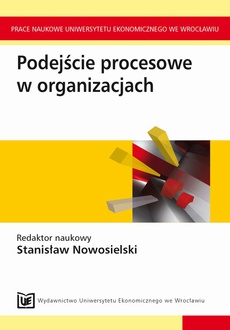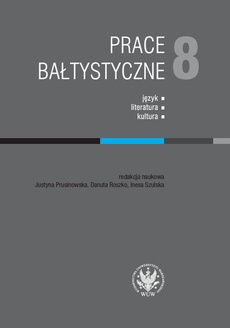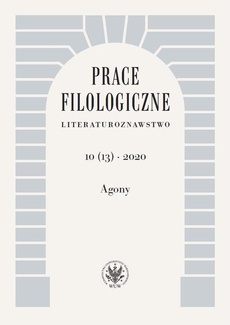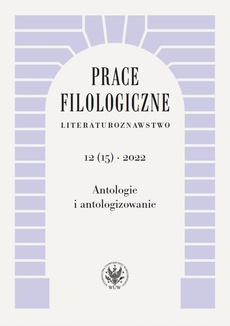POLECAMY
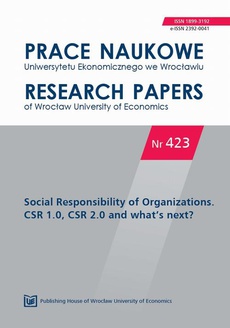
Prace Naukowe Uniwersytetu Ekonomicznego we Wrocławiu nr 423. Social Responsibility of Organizations. CSR 1.0, CSR 2.0 and what’s next?
Praca zbiorowa
Format:
ibuk
The presented volume of the Research Papers, devoted to the social responsibility of organizations, refers to the Visser’s concept of CSR 1.0 and CSR 2.0. The concept
does not concern so much the computer science categories but the progress and need to redefine its role in society. It is worth emphasizing that the CSR transition has different features depending on a company and country. It is a complex and diverse process, both from the perspective of time and space.
Within the framework of scientific discussion held on the CSR transition, several key areas of changes are pointed out. Firstly, early CSR understanding, often identifying it with philanthropy, slowly gives way to partnership relations and cooperation based on good communication between a company and a community. Secondly, the initiatives now should not be a minimalist response to social and environmental stakeholders’ expectations but should be initiated by company’s initiatives included in strategic plans and well-thought-out investments. Thirdly, the actions marked by image aspects and “produced” by PR departments will no longer constitute a credible motives confirmation for taking pro-social initiatives by a company. Enterprises will be judged on actual credible initiatives in the area of environment, society and ethics. Fourthly, a specialization (although still valid) will be gradually replaced by performances integrated into core companies’ operations. Fifthly, the effects of pro-social activity of enterprises, being visible as a form of a product or service, should not be any long er aniche project, but should be directed to a wide audience. In other words – it is about converting the “nice-to-have” product to the “must-have” one. Sixthly, the expansion of the CSR concept from the local initiatives to the global venture will allow a more culturally diverse and internationally applied concept.
| Rok wydania | 2016 |
|---|---|
| Liczba stron | 148 |
| Kategoria | Publikacje darmowe |
| Wydawca | Wydawnictwo Uniwersytetu Ekonomicznego we Wrocławiu |
| Język publikacji | polski |
| Informacja o sprzedawcy | ePWN sp. z o.o. |
Ciekawe propozycje
Spis treści
| Introduction | 7 |
| Magdalena Andrejczuk: The development of CSR in Poland as seen by managers / Rozwój CSR w Polsce w opinii menedżerów | 9 |
| Grażyna Aniszewska: Cultural background in CSR communication / Kulturowe uwarunkowania komunikowania działań społecznie odpowiedzialnych | 23 |
| Katarzyna Bachnik: Sustainable consumption through the sharing economy / Konsumpcja zrównoważona stymulowana gospodarką wspólnego użytkowania | 35 |
| Wojciech Huszlak: Ecomediations in managing company stakeholders / Ekomediacje w zarządzaniu interesariuszami przedsiębiorstwa | 45 |
| Ewa Jastrzębska: Reporting of non-financial information as a stakeholder engagement method / Raportowanie danych pozafinansowych jako sposób angażowania interesariuszy | 61 |
| Janusz Kroik, Jan Skonieczny: Value exchange in CSR strategy / Wymiana wartości w strategii CSR | 79 |
| Maria Roszkowska-Menkes: What does CSR really stand for? An analysis of corporate definitions of CSR in Poland / Co naprawdę oznacza społeczna odpowiedzialność biznesu? Analiza definicji CSR najbardziej odpowiedzialnych firm w Polsce | 94 |
| Adam Skrzypek, Nella Saadi: Profitability of socially responsible public listed companies in Poland / Rentowność społecznie odpowiedzialnych spółek giełdowych w Polsce | 107 |
| Justyna Szumniak-Samolej: Changes in the business environment that support the creation of socially responsible initiatives / Zmiany w otoczeniu przedsiębiorstw sprzyjające powstawaniu społecznie odpowiedzialnych przedsięwzięć | 122 |
| Dorota Teneta-Skwiercz: Acquaintance with the fair trade idea in Poland – results of the research / Popularność ruchu sprawiedliwego handlu w Polsce – wyniki badań | 138 |
| Dorota Teneta-Skwiercz: Acquaintance with the fair trade idea in Poland – results of the research / Popularność ruchu sprawiedliwego handlu w Polsce – wyniki badań | 138 |










